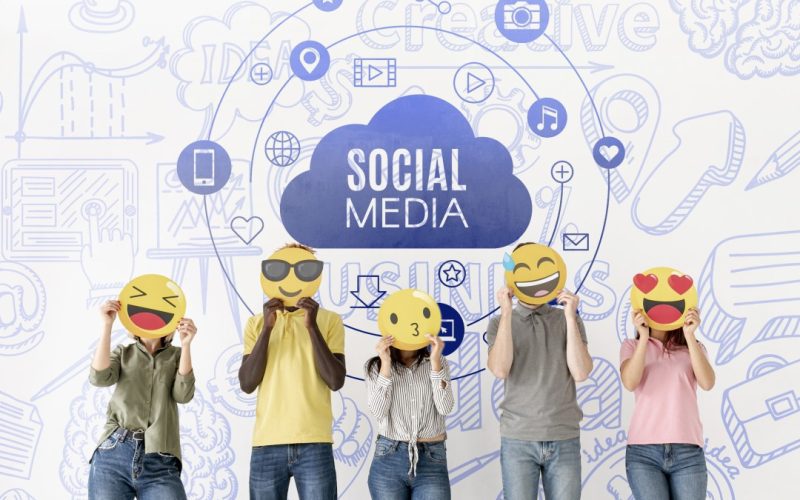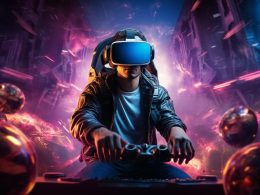Introduction
In the digital age, social media platforms have become integral to our daily lives. These platforms are not just tools for communication but also powerful engines driving our entertainment choices. At the heart of this transformation are social media algorithms sophisticated sets of rules and data processing techniques that determine what content appears in our feeds. This article delves into how these algorithms are shaping our entertainment landscape, influencing what we watch, listen to, and engage with.
Understanding Social Media Algorithms

Social media algorithms are complex systems designed to personalize user experiences. They analyze vast amounts of data to predict what content will be most engaging for each user. These algorithms consider various factors, including past behavior, interests, and interactions, to curate content that is likely to keep users hooked.
Key Components of Social Media Algorithms

- Data Collection: Social media platforms collect extensive data on user behavior. This includes likes, shares, comments, watch time, and even the time spent on particular posts or videos.
- Machine Learning: Algorithms use machine learning models to analyze this data. These models are trained to recognize patterns and make predictions about what content will be most engaging for each user.
- Content Ranking: Based on the predictions, the algorithm ranks content in a way that maximizes user engagement. This ranking determines the order in which posts, videos, and other content appear in a user’s feed.
- Feedback Loop: The algorithm continuously learns and adapts based on user interactions. This feedback loop ensures that the content remains relevant and engaging over time.
The Impact on Entertainment Choices

Social media algorithms have a profound impact on our entertainment choices. They influence what movies we watch, what music we listen to, and even what books we read. Here are some ways in which these algorithms shape our entertainment landscape:
-
Personalized Recommendations
One of the most significant ways social media algorithms influence entertainment choices is through personalized recommendations. Platforms like YouTube, Netflix, and Spotify use algorithms to suggest content based on user preferences. These recommendations are tailored to individual tastes, making it easier for users to discover new movies, TV shows, and music that align with their interests.
-
Viral Content
Social media algorithms play a crucial role in determining what content goes viral. When an algorithm identifies a piece of content that is generating high engagement, it amplifies its reach by showing it to more users. This can turn a relatively unknown piece of content into a viral sensation overnight. As a result, social media platforms have become key launchpads for new artists, filmmakers, and creators.
-
Filter Bubbles
While personalized recommendations can enhance user experience, they also create filter bubbles. A filter bubble occurs when an algorithm consistently shows content that aligns with a user’s existing preferences and beliefs, limiting exposure to diverse viewpoints and content. In the context of entertainment, this means users may miss out on discovering new genres, artists, or films that fall outside their usual preferences.
-
Influencer Culture
Social media algorithms have given rise to influencer culture, where individuals with large followings can significantly impact entertainment choices. Algorithms prioritize content from influencers, making it more visible to users. This has led to influencers becoming key taste makers in the entertainment industry, shaping trends and driving the popularity of movies, music, and other forms of entertainment.
-
Content Creation and Distribution
The influence of social media algorithms extends to content creation and distribution. Creators and producers often tailor their content to align with algorithmic preferences, optimizing for factors like engagement and share ability. This has led to the rise of bite-sized, highly engaging content designed to capture user attention quickly. Additionally, social media platforms have become essential distribution channels for new releases, with algorithms playing a crucial role in determining their visibility and reach.
The Future of Entertainment and Social Media Algorithms

As social media algorithms continue to evolve, their impact on entertainment choices is likely to grow. Advances in artificial intelligence and machine learning will enable even more sophisticated personalization, making it easier for users to discover content that aligns with their interests. However, this also raises important questions about diversity, exposure to new ideas, and the potential for algorithmic bias.
-
Balancing Personalization and Diversity
One of the key challenges for social media platforms is balancing personalization with diversity. While personalized recommendations enhance user experience, they can also limit exposure to diverse content. Platforms will need to find ways to introduce users to new genres, artists, and perspectives while still delivering personalized experiences.
-
Addressing Algorithmic Bias
Algorithmic bias is another critical issue that needs to be addressed. Bias can occur when algorithms prioritize certain types of content over others, leading to unequal visibility and representation. Social media platforms must work to ensure that their algorithms are fair and inclusive, promoting a diverse range of voices and content.
-
Ethical Considerations
As social media algorithms become more influential, ethical considerations will become increasingly important. Platforms will need to consider the impact of their algorithms on user behavior, mental health, and societal trends. This includes addressing issues like addiction, misinformation, and the potential for manipulation.
Conclusion
Social media algorithms are powerful tools that shape our entertainment choices in profound ways. They personalize our experiences, drive the popularity of content, and influence the creation and distribution of entertainment. As these algorithms continue to evolve, it will be essential for social media platforms to balance personalization with diversity, address algorithmic bias, and consider the ethical implications of their technology. By doing so, they can create a more inclusive and engaging entertainment landscape for all users.












